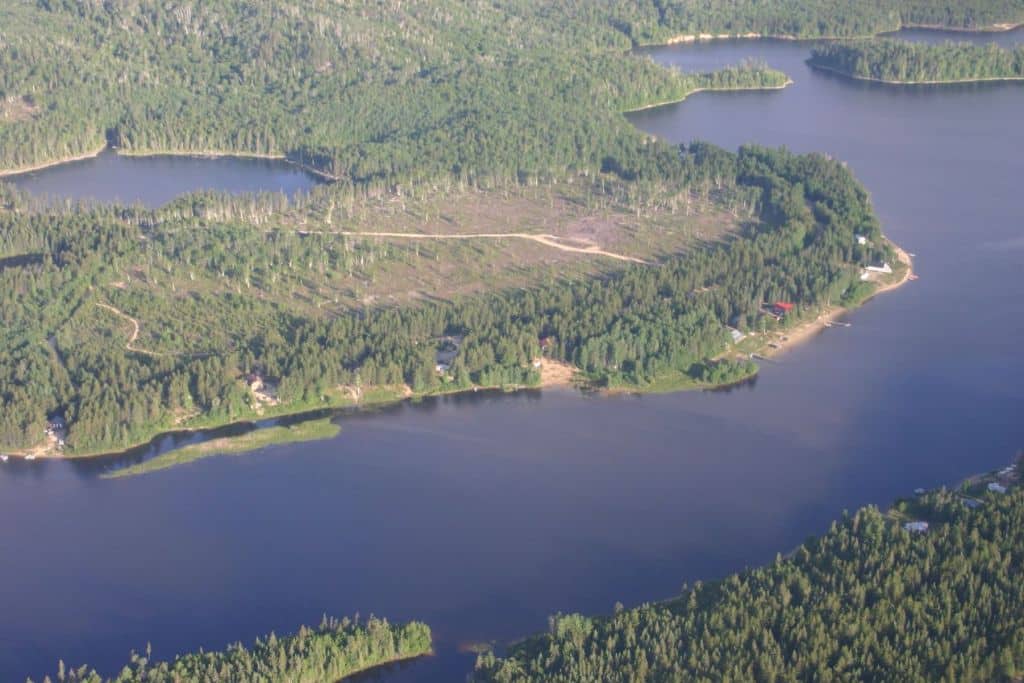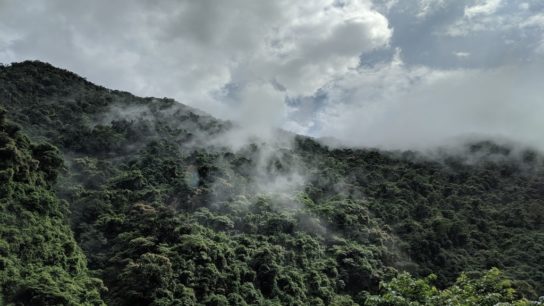As crises over water continue to worsen across the globe, a growing movement seeks to protect the world around us. By recognizing the intrinsic rights and worth of the natural world, communities around the world are seeking to create an eco-just future. But what motivates them?
—
Western views of water take an anthropocentric perspective, meaning they put human needs first. As a result of this, water has become a commodity, a resource to be bought and sold, while any damage inflicted on bodies of water is only measured in relation to human values and interests. This human-centered mindset emphasises humanity’s superiority over all else, viewing non‐human entities as something to be processed, consumed and disposed of to suit human needs, argues Rob White, a professor at the University of Tasmania’s School of Social Sciences.
So, even when projects look to incorporate environmental sustainability, damage to the environment is only considered harmful when taken as a destruction of resources. This raises concern as most environmental damage over the last five decades has been caused by people. Initiatives driven by anthropocentric assumptions prioritise concerns for financial growth, regardless of environmental destruction.
In juxtaposition, those who hold an ecocentric stance believe in protecting the environment for its own sake, arguing all lifeforms have an intrinsic value, meaning humans “ought to respect and demonstrate moral responsibility to all beings in the ecosystem.”
Humans aren’t separate from the natural world, but interlinked with it, and the wellbeing of each living entity is reliant on the Earth’s wellbeing. Therefore, rights should apply to all species and ecosystems. This view, says White, mirrors those of Indigenous peoples who “consider nonhuman organisms – and sometimes also other natural entities, such as rivers, mountains, and Mother Earth herself – to have intrinsic value.” In recent years, led by Indigenous peoples’ voices, this ecocentric thought has manifested, seeing bodies of water recognised as having legal rights.
With an anthropogenic stance causing so much harm, can ecocentrism be used as a framework for justice?
Looking at the awarding of legal personhood to Muteshekau-shipu, commonly known as Magpie River in Canada, Earth.Org looks at how this has changed conversations of justice, and whether recognising bodies of water as having “rights” could achieve a greater justice. And if so, for whom?
Understanding Ecocentrism
Ecocentrism is an ‘eco-philosophical orientation’ which values “nature for its own sake apart from any instrumental or utilitarian value to humans.” This form of ecological justice views the environment as having its own intrinsic value, regarding animals and ecosystems as holding rights to exist freely.
It maintains that humans act in ways which have global consequences, and therefore we are responsible for ensuring activities do not push the boundaries of our planet. Ecocentric debates consider what an “eco-just” future might look like, proposing that as nature holds intrinsic value, policies and practices should consider how to prevent harm coming to it. Scholars contend that to advance moral arguments, ecocentric values must be incorporated into practice.
Ecocentrism has long been a common sentiment among many Indigenous societies. It has gained traction in mainstream debates in recent years as proponents argue ecocentric awareness should be embedded throughout society to save the world from environmental devastation. By stripping nature of its value, anthropocentric idealism has reduced it to an instrument to satisfy human beings “insatiable hunger,” which will only ever see continued exploitation. Recognising the rights of nature embeds protection into governance systems, in contrast to laws which regulate rather than stop destruction of the natural world.
Case study: The Magpie River
In 2021, the Magpie River, (Muteshekau-shipu in the Innu language), was declared a living entity with rights, and granted legal “personhood.”
The decision was prompted by the damaging impact of damming for hydroelectric purposes by Hydro-Quebec. The declaration formed part of wider efforts to protect Innus – the indigenous people of most of the Labrador-Quebec peninsula – with ongoing land-claims treaty processes. These seek to “maintain and strengthen their distinct political, legal, economic, social and cultural institutions,” as enshrined in the UN Declaration on the Rights of Indigenous Peoples.

For the Innus of Ekuanitshit, the river is core to their Nitassinan (ancestral territory), and affirming Innu biocultural rights was an “important objective in recognising the river’s legal identity.” Innu beliefs align with ecocentric philosophies, seeing themselves as “inseparable from the land” as its “ancestral guardians.” Their traditional beliefs “treat the river as sacred and as an entity with agency.”
The declaration, the first of its kind in Canada, was established through mirror resolutions, from the Innu Council of Ekuanitshit and Regional County of Minganie. The resolutions granted nine legal rights and established guardians to act on the river’s behalf. These rights included the right to live, to exist and to flow, to be free from pollution, and the right to sue. The guardians, who participate in all decision-making affecting this sacred river, can take legal action on behalf of the river or claim compensation for damages suffered by the river. However, it remains unclear how this will impact attempts to build developments on the river, including dams, as legal personhood for nature does not exist in Canadian law and could be challenged in court.
What does this mean for the rest of the world? Is this truly ecocentrism in practice? And, if it is working, can it be replicated to achieve greater justice elsewhere?
Is Ecocentrism the Answer?
While issues remain in the Canadian legal system, by recognising the Magpie River as a rights holder, Canada has begun embracing the rights of nature movement. It is not the first country to do so, having taken the lead from other nations around the world that have seen successful application of legal rights for nature.
Among them are New Zealand, which has declared Te Urewera National Park and the Whanganui River as legal entities with rights, and Colombia, which granted legal personhood to the Atrato River. In the case of Los Cedros Biological Reserve in Ecuador, one ruling on the right of nature upheld the reserve’s constitutional rights against mining. Similarly, in central Florida, guardians for Lake Mary Jane filed a case in state court to uphold the lake’s rights against encroachment.
This right to nature stance seeks to dissolve the perceived divide between humans and the natural world, aiming to foster new social and legal understandings, whereby the intrinsic value of nature is recognized. As a legal tool, ecocentrism can see enhanced justice for nature.
However, while ecocentrism can be used to understand the acknowledgement of rivers rights, and bringing the environment as a whole into conversations of justice has its merits, on its own it often overlooks social injustices.
Protection for the environment alone can ignore the disproportionate impact environmentally destructive activities have on people. The case of the Magpie River, could also be seen as decolonialism in action. This stance, which demands freedom, delegitimizes political rules founded on colonialist, racist and patriarchal structures, through power shifts back to Indigenous peoples. Elizabeth Macpherson, professor at the University of Canterbury who specialises in indigenous water rights, argues that efforts to recognize water’s rights form part of ongoing transformations to cultural and socio-political landscapes within Indigenous claims settlements. She contends that ecocentrism alone does not challenge power structures or bring about equitable resolutions; therefore, a combination of decolonialism and ecocentrism is needed to ensure justice.
What Does This Mean in Practice?
While ecocentrism proposes to see protection for water bodies and the biosphere, its application has been called into question. Despite initiatives globally, many remain resistant to adopting similar legislation due to the complexity of application.
Due to this complexity and the novelty of legal developments, only time will help us evaluate the impact of the movement. While non-human entities cannot speak, this does not mean that their rights cannot be defended in court, scholars argue.
Though the impact of this legislative change is yet to be fully realised, it presents a compelling case not only for achieving greater protection for nature but also to challenge human understandings of justice beyond just human entities.
This story is funded by readers like you
Our non-profit newsroom provides climate coverage free of charge and advertising. Your one-off or monthly donations play a crucial role in supporting our operations, expanding our reach, and maintaining our editorial independence.
About EO | Mission Statement | Impact & Reach | Write for us








